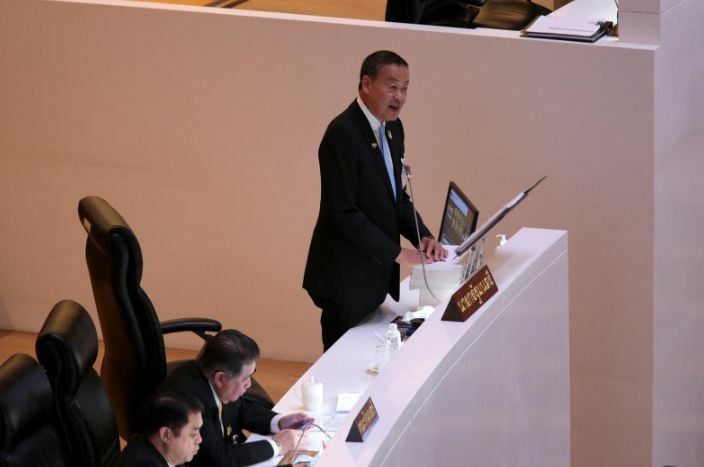Thailand unveils 3.75 trillion baht budget bill to boost economy

As the House of Representatives kicked off a three-day debate, Prime Minister Srettha Thavisin introduced a 3.75 trillion baht budget bill for the 2025 fiscal year, aimed at revitalising Thailand’s sluggish economy. Simultaneously, he remains focused on advancing the digital wallet scheme.
The budget intends to stimulate economic growth, with forecasts suggesting an increase of 2.5% to 3.5% in 2025 and inflation expected to range between 0.7% and 1.7%. Srettha highlighted the government’s efforts to improve the economic outlook for the fourth quarter and focus on boosting growth in the third quarter.
During the House meeting, the Bangkok-born PM referenced the Ignite Thailand vision, a strategy to position the country as a regional hub in eight key sectors: aviation, tourism, wellness and medical, agriculture and food, logistics, future mobility, digital economy, and finance. This vision will guide the allocation and management of the 2025 budget.
The economy still faces challenges from geopolitical tensions and trade protectionism, which could impact global economic stability. Nonetheless, the Thai premier assured that 50 million eligible people would receive 10,000 baht each under the government’s digital wallet scheme in the last quarter of the year, as planned.
“The digital wallet scheme will create economic whirlwinds to stimulate the economy from the grassroots level upwards.
“It will spur spending, production, and employment, which in turn will bring tax revenues to the government to invest in projects to boost the country’s competitiveness.”
Offset with loans
Funding for the 2025 budget will come from an estimated tax revenue of 2.88 trillion baht and a loan to offset a budget deficit of about 865 billion baht. Although the budget deficit is higher than the current fiscal year’s, the government has allocated 908 billion baht for investment, representing 24.2% of the total budget and a 27.9% increase from the 2024 fiscal year.
The National Economic and Social Development Council (NESDC) reported a year-on-year economic growth of 1.5% for the first three months, which was lower than expected. The NESDC now forecasts GDP growth of between 2% and 3% for the year, down slightly from a previous estimate of 2.2% to 3.2%. Last year’s growth was 1.9%.
On May 28, the Cabinet approved the budget bill for the 2025 fiscal year, starting on October 1 and ending on September 30 next year. Approximately 152.7 billion baht has been earmarked for the government’s 500 billion baht digital money handout scheme.
Additionally, 122 billion baht from the 2024 fiscal budget has been approved to finance the scheme, with 111 billion baht coming from a budget deficit and the remainder redirected from other parts of the 2024 budget.
The government initially planned to use 172 billion baht from the Bank for Agriculture and Agricultural Cooperatives (BAAC) as a funding source. However, legal constraints prevent the BAAC from financing the scheme, as the bank is restricted to providing financial assistance to farmers.
During the debate, Move Forward Party leader, Chaithawat Tulathon criticised the budget bill, particularly the government’s plan to offset the 865 billion baht budget deficit with loans, which approaches the legal borrowing limit. He noted that only about 163 new projects received budget allocations for the 2025 fiscal year, fewer than in 2024.
Economic impacts
Chaithawat also targeted the ruling Pheu Thai Party’s digital wallet scheme, arguing that the government is pushing the project despite its potential economic impact.
He warned that allocating 152.7 billion baht, or about 18.9%, from the 2025 budget’s 805 billion baht central fund to finance the scheme could risk financial instability and increase the government’s debt repayment burdens, reported Bangkok Post.
Democrat Party list MP, Jurin Laksanawisit echoed these concerns, suggesting that the government is minimising current fiscal year spending to divert funds to the wallet scheme.
“Budget allocations to finance the scheme will put the country at risk of financial problems. The government’s debt repayment burdens will also increase.”
Latest Thailand News
Follow The Thaiger on Google News:


























